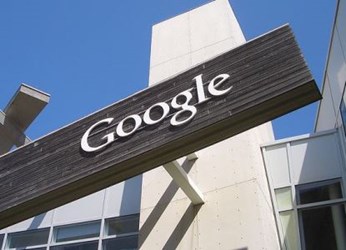Google Life Sciences Becomes Standalone Company Under Alphabet
By Jof Enriquez,
Follow me on Twitter @jofenriq

Signaling a deeper dive into medtech and healthcare, the life sciences unit under Google X R&D division will be spun-off into a standalone company under the newly-created Alphabet umbrella, according to Google co-founder and Alphabet president Sergey Brin.
In a blog post, Brin wrote, "I am delighted to announce that the life sciences team is now ready to graduate from our X lab and become a standalone Alphabet company, with Andy Conrad as CEO. While the reporting structure will be different, their goal remains the same. They’ll continue to work with other life sciences companies to move new technologies from early stage R&D to clinical testing—and, hopefully—transform the way we detect, prevent, and manage disease."
In an earlier announcement that Google was restructuring into Alphabet, Larry Page, Google's other co-founder, highlighted the company's life sciences team as "far afield" from its core Internet business.
Brin wrote, "I could not have imagined the potential of the initiative it has grown into – a life sciences team with the mission to develop new technologies to make healthcare more proactive. The efforts it has spawned include a nanodiagnostics platform, a cardiac and activity monitor, and the Baseline Study."
Conrad, who has led his team – an eclectic group of software engineers, oncologists, and optics experts – since 2013, are working on ambitious projects that could disrupt medicine, in particular, diagnostics.
Perhaps most notable is a smart contact lens that uses non-invasive glucose sensors, microchips, and miniaturized electronics to measure glucose levels in the wearer’s tears. Under a licensing partnership deal, Novartis will commercialize the technology in future ocular products. Another, diabetes-related partnership is with Dexcom, with whom the life sciences team is co-developing next-generation continuous glucose monitoring (CGM) devices.
The life sciences team is also working on an experimental wristband that can track vital signs and ambient information in real-time. The wearable is not intended for the consumer market, but designed as a medical device to monitor patients participating in clinical trials. Related, the team is also researching how a wristband can monitor nanoparticles that latch onto cancer cells, detecting their presence early in the disease.
All of this tech is tied to a larger effort called Baseline Study, in which the team attempts to make a "baseline" map of the human body on a molecular level. Researchers are looking for new biomarkers indicative of disease in early stages, against which they can devise new drugs or therapies.
“Google Life Sciences is focused on shifting health care from a reactive, undifferentiated approach to a proactive, targeted approach,” states a recent job listing, according to an article by Wired. Biomedical researchers at Google will work to transform the “detection, prevention, management and even our basic understanding of disease.”
Calico, a separate company researching ways to extend human life, will remain independent and will not be folded under the new life sciences company, The Verge reports.
